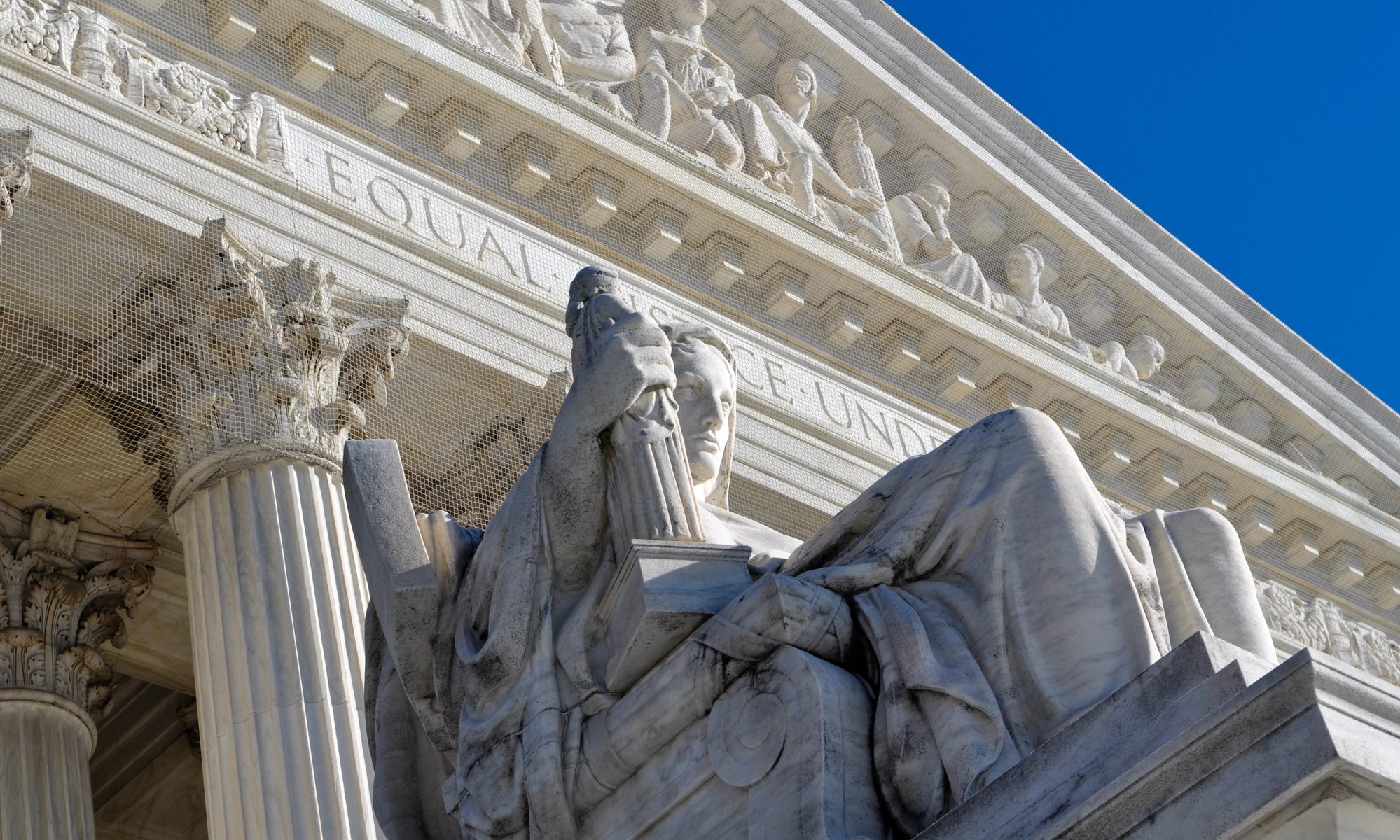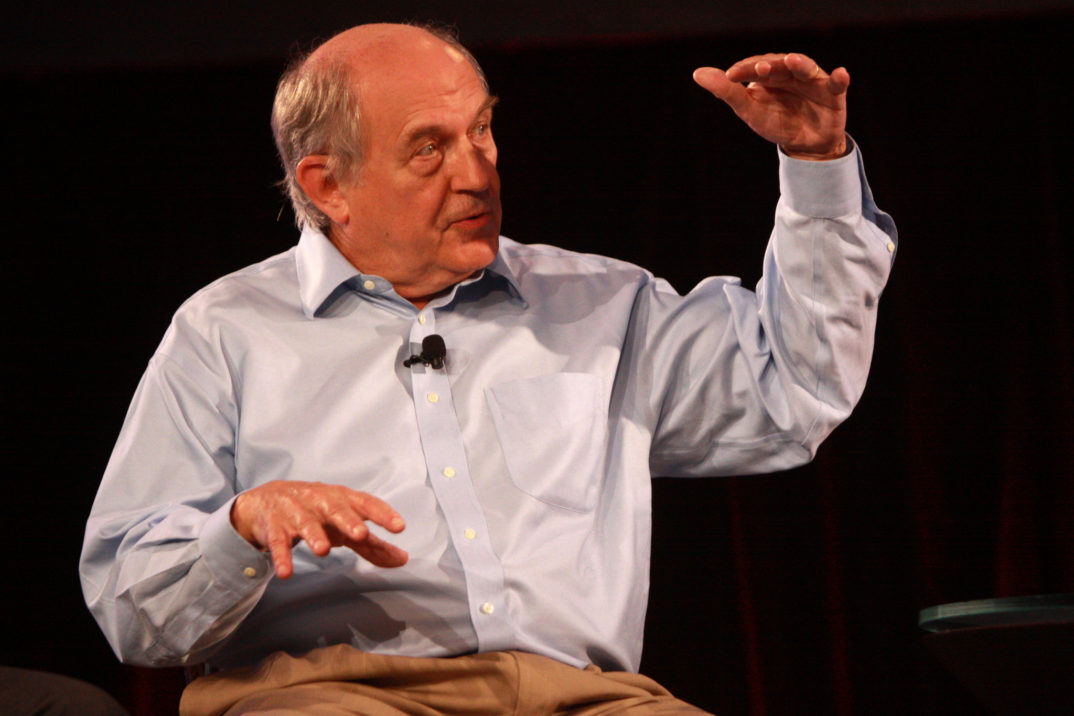In a recent judicial statement, Supreme Court Justice Samuel Alito wrote that those who adhere “to traditional religious beliefs about homosexual conduct” are in danger of being “labeled as bigots” and “treated as such.” This kind of statement has become a familiar refrain for Alito, ever since the Supreme Court recognized the right to same-sex marriage in the 2015 decision Obergefell v. Hodges. In Alito’s dissenting opinion in Obergefell, he similarly worried that the Court’s decision would be used to “vilify Americans” who oppose same-sex marriage.
Part of Alito’s concern is that the Court’s recognition of same-sex marriage might influence how some people of faith will be treated (given that many who oppose same-sex marriage do so for religious reasons). He worries that some might take these rulings to suggest that certain religious beliefs are intolerant or hateful, and that this might threaten the religious freedom of those people as a result. I’ll return to the issue of religious freedom later.
But first, I think it is worth thinking through his concerns about people being vilified or treated as bigots – regardless of their particular religious beliefs – if they oppose same-sex marriage. Alito’s position seems to rest on an assumption that the law ought to protect people from being viewed as bigots, at least in this circumstance. This naturally leads to a question: is he right? Should courts, at least sometimes, interpret laws a certain way in order to protect people from being viewed as bigots?
The short answer, I think, is no. But this short answer deserves a longer explanation that involves some important philosophical considerations.
In thinking through this, it will be useful to try to get as clear as possible about what Alito’s complaint is and is not. Alito’s complaint is not that the Supreme Court is calling people who oppose same-sex marriage bigots. The Court hasn’t done that. Instead, Alito’s complaint seems to be that the Court has issued rulings that imply that people who oppose same-sex marriage are bigots, and that others will view and treat opponents of same-sex marriage as bigots as a result. Take, for example, a 2021 judicial statement from Justice Clarence Thomas that Alito joined. That statement claims that in Obergefell the Court suggested that those “who believe that marriage is a sacred institution between one man and one woman” were guilty of “espous[ing] a bigoted worldview.”
As evidence for this claim, Thomas cites several statements from the Court’s majority opinion in Obergefell where the Court stated, among other things, that excluding same-sex couples from the right to marry “demeans gays and lesbians,” and serves “to disrespect and subordinate” them. Thomas and Alito appear to implicitly assume that those who support actions that demean, disrespect, and subordinate LGBTQ people are behaving in a bigoted manner toward LGBTQ people.
Thus, part of Alito and Thomas’ reasoning seems to go like this:
1) If one supports a position that demeans, disrespects, and subordinates LGBTQ people, then one is a bigot.
2) The Supreme Court majority in Obergefell treats a position supported by those who oppose same-sex marriage as one that demeans, disrespects, and subordinates LGBTQ people.
3) Therefore, the Supreme Court implies that those who oppose same-sex marriage are bigots.
I use the word “implies” in the conclusion instead of “views” because it is not clear that Thomas and Alito think the Supreme Court majority in Obergefell accepts premise 1. On the contrary, the Court’s majority in Obergefell held that “Many who deem same-sex marriage to be wrong reach that conclusion based on decent and honorable religious or philosophical premises.” But Alito and Thomas seem to think that this statement is insufficient to cancel the Court’s implication that those who oppose same-sex marriage are bigots.
For the sake of argument, let’s accept Alito and Thomas’ reasoning. This still leaves us with a question. How would the Court implying that those who oppose same-sex marriage are bigots lead other entities like “governments, employers, and schools” to view opponents of same-sex marriage as bigots? One reasonable answer is that Supreme Court decisions license certain views and actions by others. In other words, if the Supreme Court puts its stamp of approval on something, others are more likely to follow suit.
There is certainly something to this line of reasoning. For example, shortly after the Supreme Court held that a web designer had the right to refuse to make wedding websites for gay couples, a hairdresser announced that she would not serve transgender customers.
So let’s assume for the sake of argument that Alito and Thomas are right that the Court has implied that those who oppose same-sex marriage are bigots and that others are more likely to view those who oppose same-sex marriage as bigots as a result. Does this provide the Supreme Court with a reason to stop recognizing a right to same-sex marriage?
To answer this, consider an analogy. Imagine a court invalidates a law that allows employers to pay women less for the same work as men simply because they are women. Imagine the court does so on the grounds that such a law demeans, disrespects, and subordinates women. If we accept Alito and Thomas’ arguments, by analogy, this should lead us to conclude that those who oppose equal pay for women are bigoted against women. But that consequence seems irrelevant to whether courts should require equal pay for women.
I expect that Alito would agree that courts may prevent sex-based pay discrimination, and that he would reject an argument that courts should avoid doing this simply because it may imply that those who oppose equal pay for women are bigots. If he would, he must differentiate this analogy from the case of the right to same-sex marriage. How might he do that?
First, he might claim that a relevant difference is that those who oppose equal pay for women are bigots, while those who oppose same-sex marriage are not. This is, of course, a controversial premise. But even if we grant this premise for the sake of argument, such a response fails. This is because the response overlooks the fact that the risk that someone might be viewed as a bigot doesn’t outweigh the important moral, political, and legal value of ensuring equality based on sex or sexual orientation. Whether or not those who oppose such equality are viewed as bigots shouldn’t be the controlling issue. This gets priorities wrong.
Second, Alito might claim that there is a special concern about religious liberty in the case of those who oppose same-sex marriage for religious reasons. Indeed, in his recent statement he worries specifically about those with “traditional religious views on questions of sexual morality” being viewed as bigots.
Two points are worth making in response. First, it is important to distinguish viewing someone’s religious beliefs as bigoted versus discriminating against someone because of their religious beliefs. We have compelling moral and legal reasons to prevent discrimination based on religion. That includes preventing discrimination based on religious belief. But one can view someone’s religious beliefs as bigoted without discriminating against them, and it’s important to not conflate the former with the latter. Alito seems to have distinct worries about religious opponents of same-sex marriage being discriminated against. But that is a separate issue that would require its own examination.
Second, even if an employer wants to pay women less than men for religious reasons, the court still ought to prevent employers from doing this, even if it implies that the employer’s religious beliefs are bigoted. This is, in part, because people are not prevented from retaining religious belief, even if those beliefs are considered bigoted by others. This is also, in part, because religious freedom doesn’t require that others — including the government — accept or act in accordance with one’s religious beliefs.
At this point, one might raise the following objection: While it is true that forbidding same-sex marriage harms many LGBTQ people, isn’t it also the case that permitting same-sex marriage will harm many religious believers? The potential harms to religious believers are of two types. First, religious believers might be viewed as intolerant or bigoted. Second, religious believers might be forced to sanction same-sex marriages in various ways that violate their consciences (e.g., by being required to provide goods or services for same-sex weddings). Why aren’t the harms to LGBTQ people and religious opponents of same-sex marriage here symmetrical?
The appropriate response comes in two parts, to correlate with the two types of potential harms to religious opponents of same-sex marriage. First, the harm of being viewed as intolerant or bigoted generally is not the kind of harm that the government has good reason to prevent. (There are exceptions to this general rule, like legal protections against defamation.) On the other hand, the government often has good reason to prevent groups of people from suffering harm by not being given equal access to basic rights, like the right to marry.
Second, the question of whether religious believers should be given exemptions from certain laws due to their opposition to same-sex marriage is a question that can and should be treated separately from the question over whether we should recognize a right to same-sex marriage. The ongoing debates over whether such exemptions should be granted are a separate issue. One can decide that it’s appropriate to grant such exemptions, even if one thinks that opposing same-sex marriage is hateful or intolerant. This is because religious freedom should be extended even to views that we find hateful or intolerant.
Thus, in short, while it is understandable that many who oppose same-sex marriage don’t want others to view them as bigots, this is not a situation that the law should seek to shield them from.



